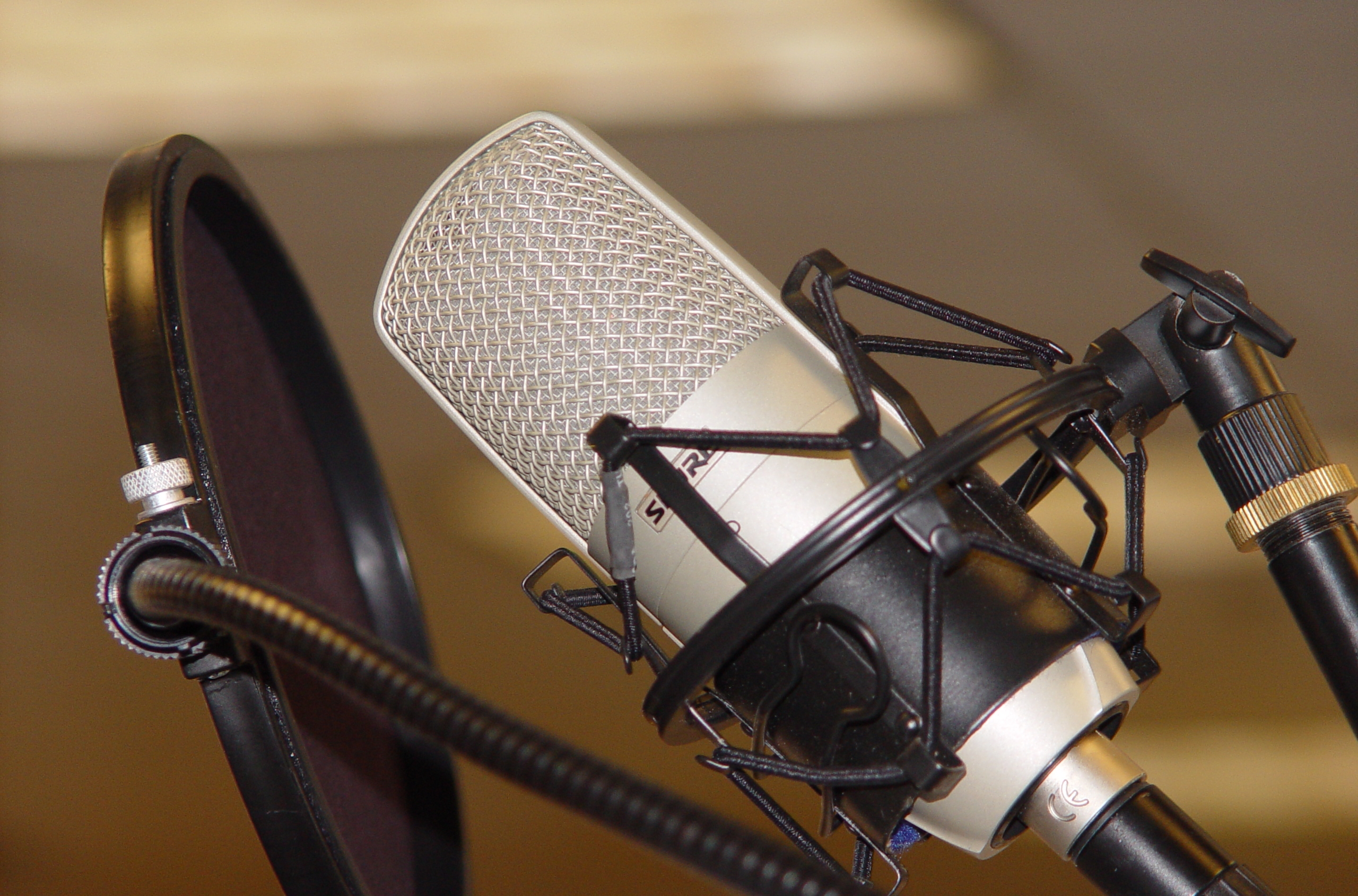8 Voiceover Tips for Beginners
I spent some time this week recording some radio spots for my friends at Sephone Interactive Media. They host my web site, and are my general go-to guys for all things web-related. Incredible team.
The series of radio spots I’m producing for them have a small section recorded by each of the team members, followed by a common closing recorded by me. As I packed up my gear after the session, they asked me, “What tips can you give us to help us improve?” So I thought I’d post a few of them here. Bear in mind, this post is gonna be strictly about technique. We can cover WHAT to say in another post.
 I’ve recorded LOTS of clients over the years, and many of them are new to voicing their own spots. Whenever I meet a new client for a first-time recording session, this is what I tell ‘em.
I’ve recorded LOTS of clients over the years, and many of them are new to voicing their own spots. Whenever I meet a new client for a first-time recording session, this is what I tell ‘em.
1) Be yourself. You’re not an announcer, and it’s totally OK if you don’t have “that voice.” You WANT to sound like you. Authenticity is key in people believing your message. It’s even OK to work with your engineer/director/producer to rewrite parts of your script on the fly, to make it fit better with the way you naturally speak.
2) If possible, stand to read. If not, at least sit up tall. And hold your script at eye level, so you don’t have to look down to read it. This will pinch your airway, and affect how you sound.
3) Position yourself with your mouth about one fist’s width away from the microphone, and speak across the mic – with your head slightly off center — rather than directly into it. This’ll eliminate popping P’s and B’s, and improve overall quality of the recording.
4) Smile as you read. People CAN hear smiles. (If your spot is a happy one, of course)
 5) Over-emote. Now OVER-over-emote. If you’d like to convey a mood of happiness, then read as if you’re crazy-happy. If it’s a sad, or sincere piece, then furrow your brow, and really ooze that sincerity. No matter how far over the top you may feel like you’re going, it never sounds as overboard on the air.
5) Over-emote. Now OVER-over-emote. If you’d like to convey a mood of happiness, then read as if you’re crazy-happy. If it’s a sad, or sincere piece, then furrow your brow, and really ooze that sincerity. No matter how far over the top you may feel like you’re going, it never sounds as overboard on the air.
6) Envision yourself talking TO someone. Imagine your ideal customer, or potential customer, and speak to him or her. And imagine ony ONE person. While your message may be heard by many, the best impact is made when each person listening feels like you’re speaking only to him or her.
7) Practice. Most of the time, you’ll have your script in advance of the session, so practice it. Try different deliveries, different inflections, and so on. This will help you with pace, and timing, as well as help you feel less self-conscious about “performing” at the session.
8) Relax, and have fun! This is your chance to “play radio” for awhile, and break out of your comfort zone, so enjoy it! I’m here to do one thing: Help you be clear in conveying your message, and we’ll stay until you’re happy with the result.
These tips don’t just apply to radio, either. Podcasting and online video are also becoming viable media outlets for businesses to communicate with their customers. If you’ve thought about starting a podcast or a YouTube channel to help market your business, these tips will assuredly help you there, too.
Got any other tips? By all means, share ‘em in the comments section. And thanks, as always, for reading. Good luck!
Brett-
Great tips for beginners and excellent reminders for VO pros. Thanks!
-JCD
Thanks for reading, J.!
What JCD said. Thanks for the great reminders!
Welcome… Thanks for the comment!
Thanks to you, Brett, for making this easy and fun, Being more tech than Radio-savvy, we appreciated your comments and experience.
Great tips and reminders. I hope you don’t mind if I add one more I learned from one rap artist. To make the script sound clear practise reading the text couple of times holding a pencil in your mouth. Bite it gently with your back teeth so that it keeps in place. Try to pronounce the words as clearly as possible although pencil in your mouth makes it a bit difficult. When you take the pencil away, the words are flying from your mouth easily and clearly.
The same techinque was used by ancient Greek speakers. They had some gravel in their mouth while practising their speeches.